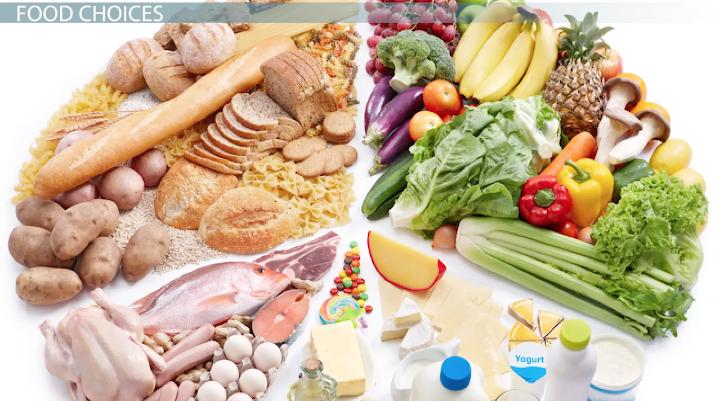
A major public health problem is nutrition-related disease. It is now estimated that one in five deaths worldwide is caused by a suboptimal diet. A shift has occurred in how healthcare systems treat patients because of the rising incidence of chronic diet-related illnesses. While there is an increasing emphasis on the delivery of interventions that use food as therapeutic modality, more research is needed to support this approach.
Integrating nutrition and food interventions offers great promise in meeting both immediate and long-term nutrition needs. The emergence of non-profit organizations that contract with the healthcare system to provide these services is a key issue. As such, they face significant difficulties, especially in terms funding.
Our current dietary recommendations are also based on average population. However, our individual needs may be different. Our brains are highly sensitive to changes in diet. We can create and maintain personalized databases that will help us make better food choices by using a personal approach. These databases can also be used as guidance to help us change our lives.

Personalized diets may be able to prevent immune-mediated diseases. We need to continue to research how the various components of a diet affect the immune system in order to prevent autoimmune diseases. We also need to identify new immuno-metabolic hubs, so that we can develop new therapies to address these problems.
Integrating cellular and molecular networks can activate immune-metabolic pathways. This interface has been exploited in immune-oncology, where drugs such as PD1 blockers have been successful in translating into clinical therapies. Similar to metabolic modulation, immunomodulatory strategies can be developed that help prevent and treat autoimmune and inflammatory diseases. With this knowledge, new treatments could be developed for Crohn's and ulcerative colitis.
In the last five years, Nutritional Immunology has seen significant changes. Integrating high-dimensional -omics in a transdisciplinary approach to nutritional immunology will enable us to unravel the molecular mechanisms of immune- and metabolic processes, and to identify new therapeutic targets. For example, transdisciplinary studies have identified new ways to treat ulcerative colitis and Crohn's disease by targeting metabolic immune function.
Over the past decade, nutrition has had a significant impact on brain function. Brain tissue is vulnerable to inflammation, oxidative stresses, and fluctuations in blood flow. It is therefore crucial to understand the importance of nutrition in brain diseases.

Both nutrition and immunity are interrelated. Nutrition and metabolism are directly linked to early stages of immunologic growth and long-term immune homeostasis. Modifications in physiology can lead to more serious diseases. It is important to change your diet habits in order to prevent or reverse an overt disease.
It is also important to be more aware of the functional properties and benefits of food. Functional foods have been shown effective in the prevention of nutrition-related diseases. Certain nutrients such as vitamin A are known to have compounds that possess an immunological tolerance ability.
FAQ
Do I need to count calories?
Perhaps you are wondering what the best diet is for you. or "is counting calories necessary?" The answer to this question depends on many factors, including your current health, your personal goals and preferences, as well as your overall lifestyle.
Which one is right for you?
The best diet is dependent on my current health status, personal goals, preferences, and overall lifestyle. There are many good and bad diets. Some diets work well for some people and others do not. What should I do then? What can I do to make the right decision?
This article aims at answering these questions. This article begins with a brief overview of the various types of diets that are available today. Then, the pros and cons of each type of diet are discussed. Then, we will discuss which diet is the best.
Let's look at some of the main types of diets to get started.
Diet Types
There are three types, low-fat, high-protein, or ketogenic diets. Let's discuss them briefly below.
Low Fat Diets
A low-fat diet restricts fat intake. This is achieved by reducing saturated fat intake (butter, cream cheese etc.). You can replace them with unsaturated oils (olive oil and avocados) People who are looking to lose weight quickly and easily will benefit from a low-fat diet. However, this kind of diet may cause problems such as constipation, heartburn, and indigestion. In addition, it may lead to vitamin deficiencies if a person doesn't get enough vitamins from their food.
High Protein Diets
High protein diets discourage carbohydrates and encourage the use of proteins. These diets usually have higher amounts of protein than other diets. These diets are intended to increase muscle mass and reduce calories. However, they might not provide enough nutrition for those who need to eat frequently. They can also be very restrictive so they may not be suitable for everyone.
Ketogenic Diets
Ketogenic diets are also known as keto diets. They are high fat and moderately carbohydrate and protein-rich. They are popularly used by bodybuilders, athletes, and others who want to be able to train harder and more efficiently without becoming tired. They do require strict compliance to avoid any side effects like fatigue, headaches, nausea, and headaches.
Exercise: Good and bad for immunity?
Exercise is good to your immune system. Your body creates white blood cells, which are immune-boosting and fight infection. Your body also gets rid of toxins. Exercise is a great way to prevent diseases such as cancer and heart disease. It also reduces stress levels.
But, too much exercise can lead to a weakening of your immune system. Exercising too hard can make your muscles sore. This can lead to inflammation and swelling. The body will then produce more antibodies to fight infection. These extra antibodies can lead to allergies or autoimmune disorders.
So, don't overdo it!
How can I live a life that is full of joy every day?
Find out what makes YOU happy. This is the first step in living a life that you love. Once you have a clear understanding of what makes you happy you can go backwards. Asking others about their lives can help you to see how they live the best life possible.
You might also enjoy books like "How to Live Your Best Life", by Dr. Wayne Dyer. He talks about finding happiness and fulfillment in all aspects of our lives.
What are 10 healthy lifestyle habits?
-
Have breakfast every day.
-
Don't skip meals.
-
Be balanced.
-
Get lots of water.
-
Take good care of your body.
-
Get enough sleep.
-
Avoid junk food.
-
Do some form of exercise daily.
-
Have fun
-
Make new friends.
Increase immunity with herbs or supplements
Herbs and natural remedies can be used to boost immune function. Examples include ginger, garlic and oregano, echinacea, vitamin C, ginkgo Biloba, and echinacea.
These herbs should not be considered as a substitute for conventional medical treatment. They could cause side effects like nausea, dizziness or stomach cramps, dizziness as well as allergic reactions.
What is the difference in a virus and bacteria?
A virus, a microscopic organism that can not reproduce outside of its host cells, is called a virus. A bacterium, a single-celled organism, reproduces by splitting into two. Viruses can be as small as 20 nanometers, while bacteria can grow up to 1 micron.
Viruses spread easily through contact with bodily fluids infected, including saliva and urine, semen, vaginal secretions or pus. Bacteria are often spread via direct contact with contaminated surfaces and objects.
Viral infections can be transmitted through skin cuts, scrapes and bites. They can also get into the skin through the nose, mouth and eyes, ears as well as through the rectum, rectum and anus.
Bacteria can enter the body through cuts, scrapes burns and other injuries to the skin. They can also get into our bodies via food, water or soil.
Viruses and bacteria both cause illness. However, viruses cannot reproduce within their hosts. They only infect living tissues when they cause illness.
Bacteria can grow in their hosts and cause disease. They can even invade other parts of the body. Antibiotics are needed to eliminate them.
Statistics
- WHO recommends consuming less than 5% of total energy intake for additional health benefits. (who.int)
- Extra virgin olive oil may benefit heart health, as people who consume it have a lower risk for dying from heart attacks and strokes according to some evidence (57Trusted Source (healthline.com)
- According to the 2020 Dietary Guidelines for Americans, a balanced diet high in fruits and vegetables, lean protein, low-fat dairy and whole grains is needed for optimal energy. (mayoclinichealthsystem.org)
- nutrients.[17]X Research sourceWhole grains to try include: 100% whole wheat pasta and bread, brown rice, whole grain oats, farro, millet, quinoa, and barley. (wikihow.com)
External Links
How To
10 tips to a healthy lifestyle
How to keep a healthy lifestyle
We live in a fast world where we don't get enough sleep, eat too much, drink too much alcohol and smoke cigarettes. We don’t care enough about our health.
When you work full time and have to balance your exercise and diet regimens, it can be hard to create a healthy lifestyle. It becomes even harder if you are stressed out because your mind tells us that we cannot handle this situation anymore so we start feeling guilty and give up.
If you feel like something is wrong with your body, then it probably is. Consult a doctor immediately to get his/her opinion on your current condition. If there are no signs of something abnormal, stress from your job could be the cause.
Some people believe that their job allows them to exercise regularly, or they have friends who support them in staying fit. They are fortunate. Those people don't have any problems. They have everything under control. I wish everyone could become like them. Unfortunately, most of us don't know how to balance our work life and personal life. Many people fall prey to bad habits, which can eventually lead them to developing diseases like heart disease, diabetes and cancer.
Here are some tips that might help you to improve your lifestyle:
-
Sleep well - at least 7 hours per night, maximum 8 hours. It includes sleeping in the correct positions and avoiding caffeine before bed. Caffeine blocks the melatonin hormones making it hard to fall asleep. Also, make sure that your bedroom is clean and dark. Make sure that you use blackout curtains especially if you are working late at night.
-
Eat healthy. Have breakfast every morning. Avoid sugar products, fried foods and white breads. Fruits, vegetables, whole grains and whole grains are good options for lunch. Afternoon snacks are recommended to be rich in protein and fiber, such as nuts, seeds, beans, fish and dairy products. Avoid unhealthy snacks such as chips, chocolates, cookies and cakes.
-
Get plenty of water. Most people don't drink enough. Water can help us burn more calories, keep our skin supple and young, flush out toxins and improve our digestion. Aim to drink six glasses of fluids daily to lose weight more quickly. Your urine color is the best way to determine your hydration levels. A yellow urine color indicates that you are dehydrated. An orange urine color means that you are slightly dehydrated. Pink urine means that your hydration level is normal. Red urine means that you are overhydrated. Clear urine means that your urine is highly-hydrated.
-
Exercise - Regular exercise has been shown to reduce depression and increase energy levels. Walking is an easy workout that can also improve your mood. Even though it may look easy, walking requires focus and concentration. Your brain must be able to focus on the act of walking while you breathe slowly and deeply. A brisk walk for 30 minutes can burn between 100 and 150 calories. Slowly increase the pace. Stretching is key to preventing injuries.
-
Positive thinking is key to mental health. Positive thinking creates a positive environment within ourselves. Negative thoughts cause anxiety and drain our energy. Try to visualize the things you are aiming to achieve. If you feel overwhelmed by all these new tasks, break down each task into small steps. You will fail occasionally, but you can always get up and try again.
-
You must learn to say No - Too often we get so busy we forget how much time is wasted on things that are not important. It is important to be able to say No when needed. Being polite when you say "no" does not mean that you are rude. Saying No is simply saying that you cannot take care of something right now. You can always find a way to finish the task later. Try to set boundaries. Ask for help. Oder delegate this job to someone else.
-
Take care to your body. Eat healthier foods to boost metabolism and shed extra weight. You should avoid eating too many oily and heavy foods, as they can increase your cholesterol. You should eat three meals and two snack each day. Around 2000 to 2500 calories should be consumed each day.
-
Meditation can be used to reduce stress and anxiety. You can relax your mind by simply sitting still and closing your eyes. This exercise will improve your ability to think clearly and help you make decisions. Meditation can help you become calmer and happier.
-
Breakfast is the most important meal you should eat each day. Skipping breakfast can lead you to overeating at lunch. You don't have to wait until noon to enjoy a healthy breakfast. Breakfast boosts energy and helps to manage hunger.
-
Make sure you eat clean food. Food has a greater impact on your mood than you realize. Avoid junk food and food that contains artificial ingredients or preservatives. These foods can make your body more acidic and cause cravings. Vitamins and minerals found in fruits and vegetables can improve your overall health.
-
***